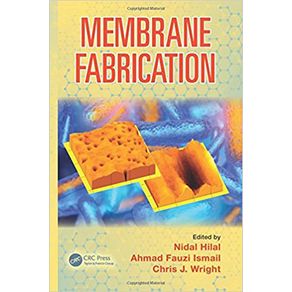Membranes play a crucial role in ensuring the optimum use and recovery of materials in manufacturing. In the process industries, they are required for efficient production and minimization of environmental impact. They are also essential for the efficient production of clean water, a significant global issue. Membrane Fabrication brings together experts from various disciplines who discuss current membrane fabrication methods and how they are used in the optimization of membrane applications. They present innovative ideas on the development of membrane science and technology with a view toward efficient application of membrane separation processes. Exploring fabrication processes for polymeric, inorganic, and composite membranes, the book details the effects of different fabrication conditions and how these conditions can be controlled to optimize membrane construction and the subsequent application of the membrane system. It examines the advantages and disadvantages of each type of membrane, including the malleable yet vulnerable polymeric membranes, the robust yet costly inorganic membranes, and composite membranes, constructed with a blend of inorganic and organic materials. Offering a comprehensive survey of a range of fabrication methods, the book is essential reading for those engaged in the R & D activities of the field, as well as those interested in the sustainable development of membranes for various applications. It is also an important resource for industrialists and others charged with developing and introducing membrane processes into production or waste management.



